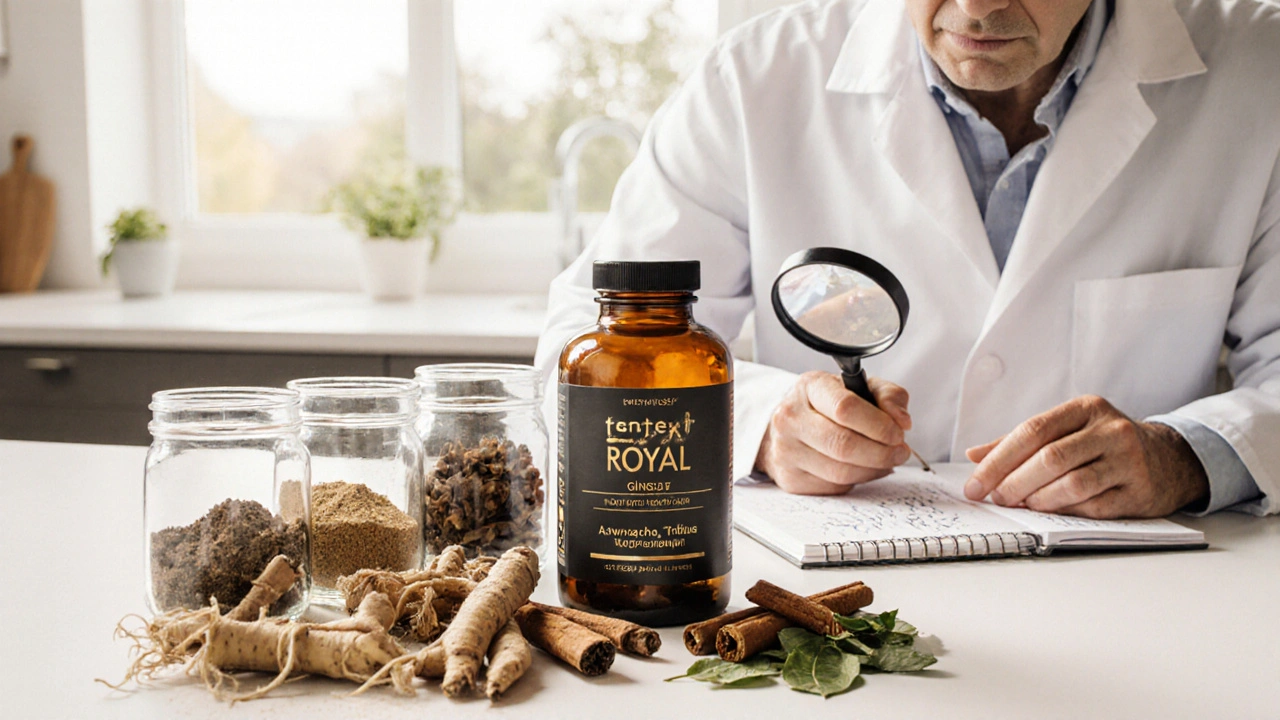If you’ve ever reached for a tea bag or a bottle of tincture instead of a pharmacy pill, you’re already part of the herbal‑remedy crowd. People choose herbs because they want something that feels closer to nature, often with fewer side effects. The good news? Many herbs have been studied for real health benefits, and you can start using them without a pharmacy visit.
But jumping in blind can lead to wasted money or even unwanted reactions. That’s why we break down the most talked‑about herbs, give you simple dosage pointers, and flag the safety basics you need to know.
Rehmannia (Rehmannia glutinosa) is a classic adaptogen used in traditional Chinese medicine. It’s praised for supporting kidney yin, which translates to helping the body stay hydrated and balanced. Most people take Rehmannia as a dried root powder or a liquid extract. A typical daily dose ranges from 3 to 9 grams of the raw herb, or 500‑1000 mg of a standardized extract. Side effects are rare, but big doses can lower blood pressure, so keep an eye on any dizziness.
Bittersweet Nightshade (Solanum dulcamara) sounds spooky, but when handled right it offers anti‑inflammatory and immune‑boosting properties. Historically, it’s been used for joint pain and skin irritations. Because the plant contains toxic compounds in high amounts, the safest route is a low‑dose tincture (about 1‑2 ml per day) or a short‑term tea made from a few leaves. Never use raw berries or large amounts without professional guidance.
Fir (Abies spp.) isn’t just a Christmas tree—its needles and essential oil are packed with antioxidants and respiratory helpers. A fir needle tea can ease coughs and clear sinuses. Brew a cup with a teaspoon of fresh or dried needles, steep for 5‑10 minutes, and drink up to three times daily. If you prefer oil, add a drop or two to a diffuser or dilute in a carrier oil for a skin rub. People with pine allergies should skip it.
Wahoo (Acanthopterus), marketed as a dietary supplement, is gaining attention for its high protein and omega‑3 content. It’s often sold as a powdered shake mix. A serving (about 30 g) can boost muscle recovery and support heart health. Pair it with a balanced diet and you’ll notice steadier energy levels. Watch for added sugars in flavored versions.
First, start low and go slow. Begin with the smallest recommended dose and see how your body reacts for a week before adjusting. Keep a simple log of what you take, when, and any changes you notice—this helps spot patterns without a doctor’s office.
Second, choose reputable sources. Look for brands that test for contaminants and list exact plant parts used. Organic certification isn’t a guarantee, but it reduces pesticide risk.
Third, mind interactions. Herbs can affect prescription meds—Rehmannia may amplify blood‑pressure meds, and nightshade can interfere with certain diuretics. If you’re on any medication, a quick chat with your pharmacist can save headaches later.
Finally, respect seasonal timing. Some herbs work best in spring when the plant is young; others, like fir needles, are strongest in late summer. Aligning your usage with the plant’s natural cycle can boost potency.
By blending knowledge with a bit of curiosity, you can turn herbal remedies into a reliable part of your health toolkit. Whether you’re looking to support kidney health with Rehmannia, soothe a sore throat with fir tea, or add a protein punch from Wahoo, the right herb—used responsibly—can make a noticeable difference.

Melatonin isn't a sleeping pill - it's your body's natural signal for nighttime. Learn how to use low-dose melatonin correctly for jet lag, shift work, and delayed sleep, and why high doses often fail.

Discover how neem (Nimba) stacks up against popular herbal alternatives for skin, oral health, and blood‑sugar control, with practical tips and a side‑by‑side comparison.

A detailed comparison of Tentex Royal with top herbal libido boosters, covering ingredients, efficacy, safety, price and best‑fit scenarios for each option.

Thinking about Rehmannia? Get a clear, evidence-aware guide to benefits, dosage, safety, forms, and what to expect-written for real people who want results.

Discover how incorporating fir into your wellness routine can revolutionize your health. This guide explores the various health benefits of fir, from boosting your immune system to improving respiratory functions. Learn practical tips and interesting facts about using fir in your daily life. Whether you're new to natural remedies or a seasoned enthusiast, this complete guide offers insights into maximizing the health benefits of fir. Uncover the secrets of this potent natural ingredient and start your journey to better health today.

Bittersweet Nightshade might sound mysterious, but it's packed with potential health benefits that have been valued for centuries. Despite its toxic nature in large doses, careful use as a part of herbal remedies can offer relief from various ailments. Learn the historical uses of this plant, its health benefits, and how to safely incorporate it into your wellness routine. Discover the intriguing balance of risk and reward that makes Bittersweet Nightshade a topic of interest for holistic health enthusiasts.

Discover how Wahoo dietary supplements can transform your diet and improve your health. This article delves into the benefits, interesting facts, and practical tips for incorporating Wahoo into your daily routine. Learn why many are making the switch and how it can fit seamlessly into your lifestyle. Arm yourself with useful insights and take the first step towards a healthier you.